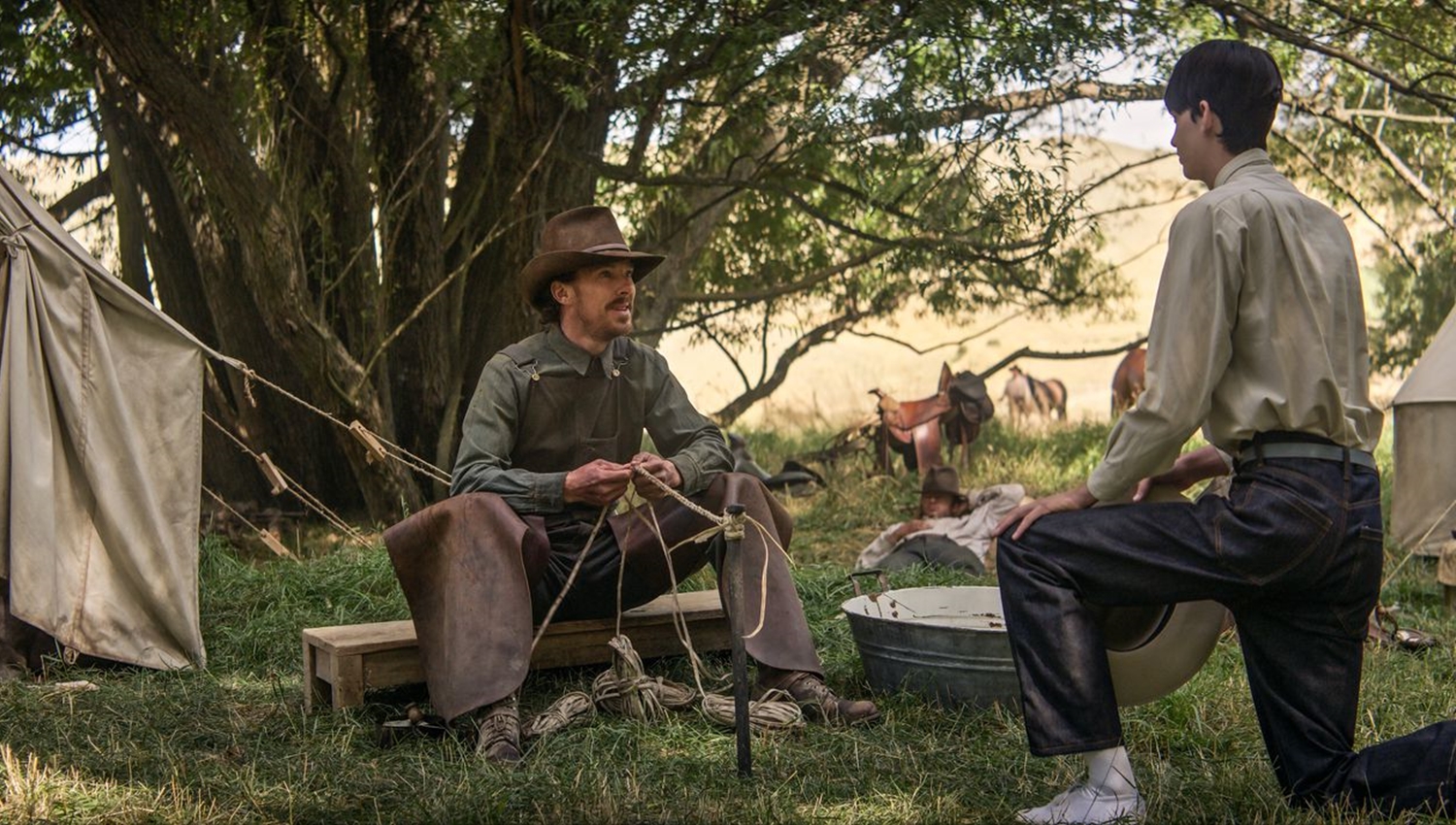
The Power of the Dog
Dustin Chase
Yes there is a piano in Jane Campions new film, the Oscar nominated director worried about that element with “The Power of the Dog”, but has since embraced the idea that they are both companion pieces and bookends to her career. The director from New Zealand used her home country to stand in for Montana during the 1925’s. The mainstream escapism western genre of the past, good versus evil, is more complex than ever in the hands of a nuanced maestro like Campion. Based on the novel by Thomas Savage, Campion’s screenplay focuses in on a particular subject and the push and pull of power within a non-traditional family. It only takes one watch of “The Power of the Dog” to realize it’s a masterpiece, but might take multiple viewings to discover all the intricate details, symbolism and psychology embedded in this slow burn thriller.
For over 25 years Phil (Cumberbatch) and George (Plemons) have run their parents cattle ranch with great success. Phil is educated, smarter than everyone around him, but gets in dirty with the men, using bare hands as often as his brain. George is the quiet one, taking care of the mundane side of the business, showcasing great patience and restraint for his brothers behavor. When George takes local widow Rose Gordon (Dunst) as his bride, the duality and bond between brothers is fractured to a degree that Phil begins mentally tormenting Rose and her 18-year-old effeminate son Peter (Mcphee). Without words or even obvious actions, Phil creates an unbearable environment for the new members of the household.
Jane Campion is the real star however, it’s her meticulous direction that makes “The Power of the Dog” such a distinguished film that will be debated for years to come.
“The Power of the Dog” offers Oscar nominee Cumberbatch (“The Imitation Game”) a chance to showcase his range as an actor. In fact, the actor went method for the role, not bathing for most of the shoot. “I stink, and I like it,” his characters proclaims confidently. He and co-star Dunst also decided best not to speak for the duration of the shoot that was interrupted by the pandemic and kept everyone in New Zealand waiting to resume. The cast and crew discussed the difficulty of shooting the film, staying in character during the hiatus, and the inspiration Campion found on the other-side of the forced break at a press conference in Los Angeles. Campion says the vision for the film kept evolving, even in the editing room. The result is a nuanced film that will be debated for years, as with Campions other work, including “The Piano”, she never gives easy answers.
Best cinematography might end up going to the sci-fi epic “Dune”, but “The Power of the Dog” will give it a run for the golden statue. Ari Wegner (“Lady Macbeth”) is no stranger to shooting rugged beauty in harsh landscapes, and she does masterwork here. “The Power of the Dog” has a “There Will Be Blood” flare, perhaps that’s thanks to composer Johnny Greenwood who scored both dark and brooding films. Here he uses familiar instruments played in unusual ways to create sounds that further push the audience to the edge of their seats. In fact, “The Power of the Dog” creates such tension the first time you watch, it’s easy to miss a lot of the subtle details. While Cumberbatch is brilliant as Phil, a character unlike anything we have ever seen on screen, it’s Aussie Kodi Smit-McPhee (“X-Men: Apocalypse”, “Dawn of the Planet of the Apes”) who steals much of the attention on screen. Jane Campion is the real star however, it’s her meticulous direction that makes “The Power of the Dog” such a distinguished film that will be debated for years to come.
Final Thought
Jane Campion’s impeccable direction illuminates nuanced and bold strokes while simultaneously redefining the western as we know it.
